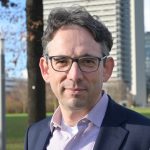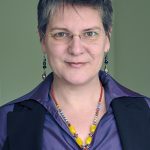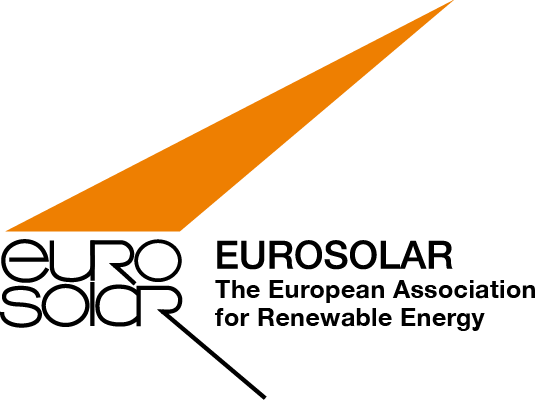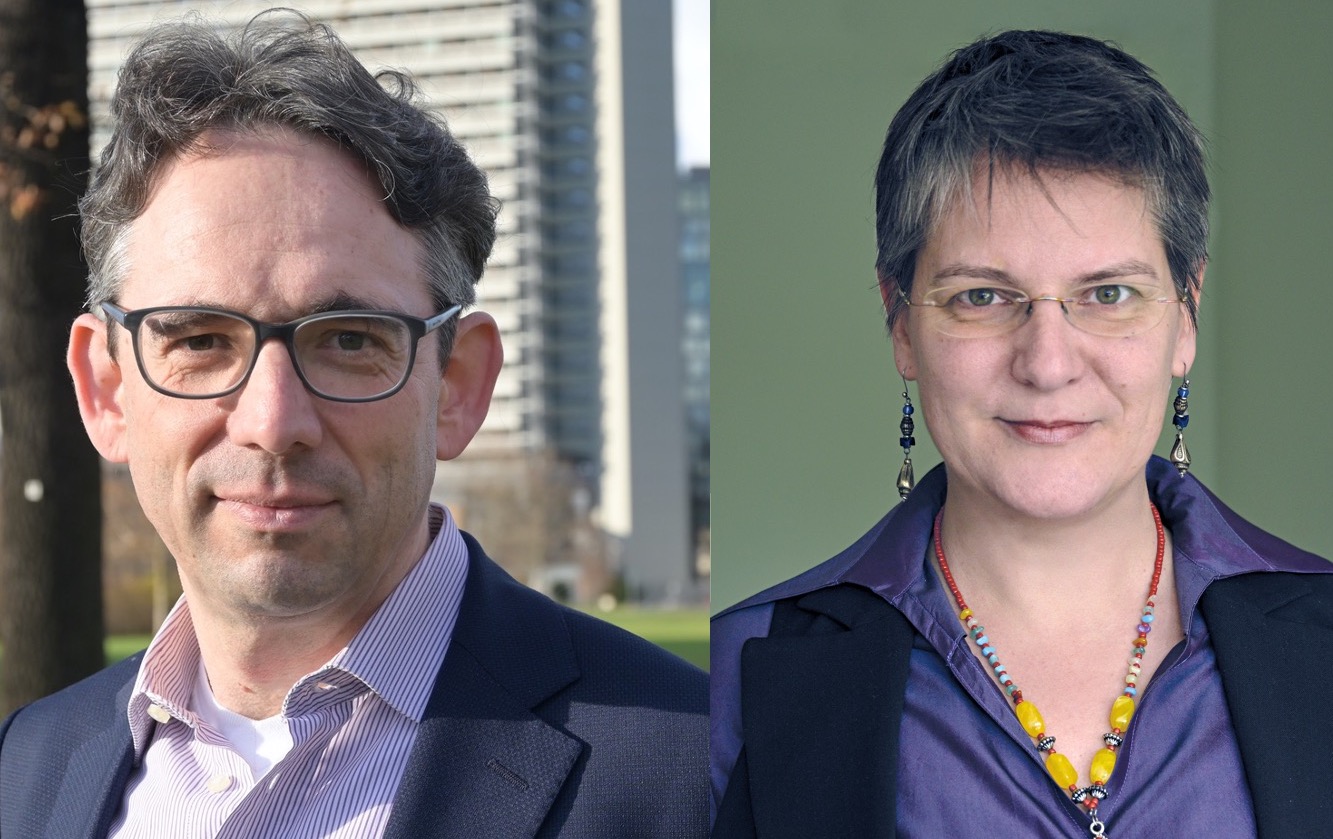Interview with Stefan Gsänger, Secretary General WWEA, and Krisztina André, member of the national advisory board of the WWEA-project “Women for the Energy Transition”
The energy transition has a diversity problem. Although women tend to be overrepresented in the climate and environmental movements, they are still too often absent from the energy transition. While the energy transition has always been, at its core, a citizens’ project in which actors from all parts of society come together and join associations, cooperatives and community projects to fight for a change towards a decentralised and sustainable energy system, some systemic issues were overlooked. The energy sector is traditionally male-dominated and still largely run by men. Although the renewable energy sector is clearly ahead of the fossil energy industry in terms of diversity, it also shows patterns that are familiar from other sectors of the economy: Women work mainly in lower-paid jobs, few sit in executive suites or do technical jobs. This is also true for community energy: women are significantly underrepresented. At the end of last year, the World Wind Energy Association (WWEA) and the North Rhine-Westphalia Renewable Energy Association (LEE NRW)launched a research project to get to the bottom of the systemic barriers for women in the energy transition:
You recently presented the first results of the project. Can you tell us more about how it came about and what it aims to achieve?
Stefan Gsänger: WWEA has been working in the field of community energy for more than a decade, because we noticed how important a broad, democratic and participatory approach is to make the shift towards 100% renewable energy happen fast. During all those years, we have not only realised that in general women are underrepresented in the energy and in the renewable energy sector, but that the same situation seems to be the case in community energy – although community energy by definition is based on broad social participation. We have then found out that there is not really reliable data available about the ratio between men and women in community energy – and hence decided to do more in-depth research in the field. Of course our ultimate goal is to broaden the community energy movement and with it strengthen the social support for renewable energy. The figures which we have found indicate clearly that our assumptions were right: only 29% of the shareholders in the questioned community energy projects in Germany are female, and these women hold only 27% of the shares. So there is a clear imbalance which should be addressed.
Diversity and gender parity are increasingly becoming the focus of public attention. What are the benefits of a diverse and inclusive energy transformation?
Stefan Gsänger: The transformation of the energy system towards a renewable energy based system is a huge task for our societies, and it requires huge efforts and very broad support. This support can only be obtained if people see and feel directly the benefits from renewable energy, for their daily lives. Accordingly, we have always emphasised the importance of broad socio-economic distribution of benefits and of the broadening of ownership. Our findings point out that women are not yet sufficiently included and may not benefit as much as men do. By the way, we have also found out that the community energy entities themselves find also other social groups as underrepresented, in particular people with migratory background. This means that the lack of female representation might only be one part of a lack of equal social participation and representation.
Ms André, can you tell us a little about how you got involved in renewable energies and about your role in the project?
Krisztina André: I have been involved in projects regarding environmental issues, women and nature protection for almost 30 years. Renewable energies, however, only played a peripheral role. I set up one solar module in Hungary back in 1995, and realized what potential it had, but it was so expensive; how I would have loved to have had a Renewable Energy Act and feed-in-tariff!
After having moved to Germany, I got a chance to get involved in citizen energy cooperatives. These cooperatives give women equal power in decision making regarding energy, very unlike the situation in the male-dominated nuclear and fossil energy sector.
I co-authored the European Green New Deal of DiEM25 and then ran for the European Parliamentary elections, also for DiEM25. I became a member of the board of the German Citizen Energy Alliance BBEn, representing about half a million energy active citizens in Germany and lately I am also co-chairing the Community Energy Group of the International Energy Agency IRENA.
These positions are very exposed, and many women would shy away from such roles. I want to encourage them to stand up and join. We have no time to waste, the climate crisis dictates our deadline, we have to go 100% renewable by 2030 the latest.
I am honoured to be in the advisory board, especially because it will finally provide the necessary statistics and insights on diversity in the renewable energy sector and we can start with development of more effective and practical tools on inclusion. My role is to provide advice on setting up the data we need to collect, help analyzing and concluding the final results.
The study’s findings are consistent with a perceived truth: women are largely underrepresented in the energy sector, including in citizen energy. Which findings surprised you?
Stefan Gsänger: It came somehow as a surprise that the share of women tends to be even lower in smaller projects, and in wind energy projects. Women hold higher shares in solar cooperatives, and are hardly involved in wind farms which have usually a different legal form, e.g. as a limited company. So there are some indications that community energy entities which are more open tend to have higher female participation. Maybe not such a big surprise is that community energy companies with more female shareholders have also more women in the management.
Krisztina André: The real surprise was that the assumptions we had about the way women participate, to what extent under what conditions, was now visible in numbers and corresponding to what we already assumed. Women are active in rather larger energy cooperatives with a high number of women in leading positions. There’s a correlation between hindering bureaucracy and women’s participation e.g. solar projects are easier for women to participate in, then wind energy projects, especially the auctions in the wind energy sector hindered women’s involvement. Auctions favour male dominated large investors. The irony is, that auctions led to higher renewable energy prices, as there is less concurrency now.
The project compiles research data from Germany and Japan. Did any significant differences emerge? And if so, which conclusions do you draw from this?
Stefan Gsänger: We as a world association are of course interested in international developments. Japan has a significant community energy sector and a quite different culture, compared with Germany. Accordingly, we expected that an international comparison would allow us to draw more general conclusions. Indeed the findings in community energy in Japan are somehow similar to Germany: Women are underrepresented, both in terms of shareholders as well as in the management. Data from Japan indicate that the shares of women in Japan are even lower than in Germany. However, in Germany as well as in Japan, there are some exceptional cases with very high female shares amongst shareholders as well as amongst the management. So it seems that a general conclusion can be that women attract women.
Which changes do we need to make to create gender balance in the energy transformation?
Stefan Gsänger: Actually this question will be the focus of the second year of our project, but of course we have already started to think about how to address the empirical findings. At first, it is of crucial importance to underline and to make sure that community energy plays a central role in the energy transformation. This role has recently suffered a lot in particular in Germany, e.g. because the introduction of auctions has made it much more difficult for smaller community based entities to participate in the energy market. So one answer must be: give priority to community energy. How to increase the share of women in community energy requires certainly answers at least on two levels: community energy entities should become more open – and we believe that our research has already contributed to raise awareness with the community energy sector. Secondly, there are of course these general barriers which still prevent women from playing a bigger role in the economic activities in general: more household/childcare work, hence less time and less available income, prevailing stereotypes etc. And we should highlight the importance of female role models – where women are visible, other women will feel encouraged to join as well.
Krisztina André: Role models are definitely a driving force, but also quota and even the way of communication, like making women visible in competent roles help. Education or gender training are important cornerstones for cooperation between women and men. Realizing that through the active involvement of women the energy transition will double in speed and power. We need everybody to participate to bring the Energiewende to success. But most of all, we have to ensure the energy transition remains in the hands of citizens, the energy production and consumption has to remain in the region and the information and digitalisation has to be as well locally organised and controlled by the same citizens.
What are the next steps of the project?
Stefan Gsänger: After publishing the empirical results of the first project year, we will fully focus on your previous question: Which tools, which approaches can help to reduce the imbalance between male and female participation. It is very encouraging to see that our project has found very positive response not only in the social science community, but also amongst many community energy and renewable energy proponents. I am sure that these people will come up with many new and innovative ideas which we will take up and include in the general recommendations which we will conclude and publish in summer 2022.
Ms André, who are your champions advancing women in renewable energy?
Krisztina André: My champions are the same as the women I work or network with. For instance Tina Ternus, the “electricity rebel”, she inspired me a lot, or Dörte Hamann, who is fighting against massive overdimensioned direct current transmission lines and for renewable energy autonomy, or those women engaged in electric mobility trying to stop discreditation of the battery technology, Karin Neckamm, an EV pioneer, and Doris Holler-Bruckner, the publisher of Ökonews in Austria, Laura Zöckler from the energy cooperative HEG in Heidelberg, Beate Petersen, the speaker of our BBEn council, Susanne Jung, in the board of Solar Support Association SFV, my co-board member at BBEn, Katharina Habersbrunner, Verena Ruppert, from BBEn advisory board, and many other visible and invisible women, all of us networking on different levels with each other.
My strong belief is: we women have to claim back our right to the sun, to renewables for all. Nobody should step in between, because it is our human right and our responsibility to take care of the continuity of human civilization, of all living beings, including flora and fauna on this Planet.
Mr Gsänger, Ms André, thank you very much for your time.
The interview was conducted by Julia Broich.



